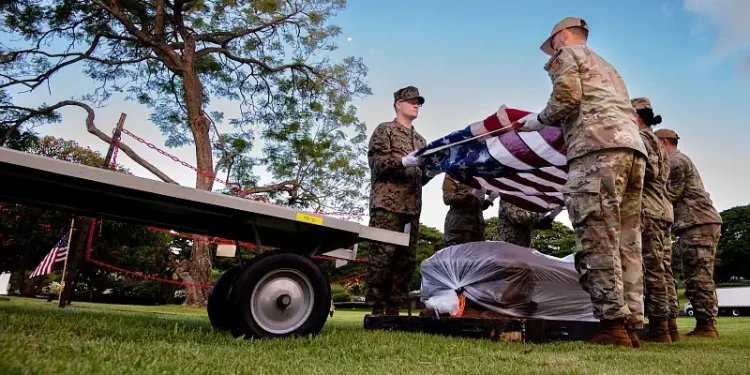The Defense POW/MIA Accounting Agency (DPAA) held its annual briefing on August 7, 2025, in Arlington, Virginia, updating over 400 family members of U.S. service members missing from the Korean War and Cold War.
Nearly 7,500 Americans remain unaccounted for from the Korean War, with about 125 from Cold War missions. The DPAA continues efforts worldwide to locate and identify remains using new DNA technology.
Efforts to Locate Missing Personnel
The DPAA is committed to accounting for missing U.S. service members through global operations. Utilizing advanced DNA technology like SNP assay has improved identification accuracy significantly.
Despite these advancements, North Korea’s lack of cooperation remains a significant hurdle in repatriating remains believed to be within its borders.
Director Kelly McKeague emphasized the importance of connecting with families during the annual briefing event.
Part of this is obviously … us being able to connect and communicate with them, to provide them updates on their cases,
he stated.
This gathering also serves as a reunion for families seeking mutual support.
International Cooperation
The DPAA collaborates with 46 countries worldwide in its mission to recover and identify missing personnel. Countries such as China, Japan, Germany, and Vietnam have shown cooperation despite past conflicts with the United States.
This collaboration underscores a shared humanitarian responsibility that transcends historical adversities.
Building Bridges Through Humanitarian Efforts
- China’s cooperation highlights potential for positive bilateral engagement amid broader geopolitical tensions.
- The Trump administration’s openness to dialogue with North Korea could pave the way for future cooperation on humanitarian grounds.
- Successful identification of service members like U.S. Army 1st Lt. William H. Hott symbolizes progress in DPAA’s mission.
- The U.S.’s commitment reinforces its credibility in honoring veterans’ sacrifices globally.
Technological Advancements in Identification
The development of new DNA technologies by Tim McMahon and his team at Defense Department DNA Operations has been pivotal in enhancing forensic capabilities.
These advancements not only aid in identifying remains but also have broader applications across defense and humanitarian efforts worldwide.
Additional Reading
Parting Shot
The ongoing efforts by the DPAA highlight a steadfast commitment to bringing closure to families of missing service members while fostering international goodwill through humanitarian missions.
As technological advancements continue to enhance identification processes, there is hope that diplomatic channels may open further opportunities for cooperation with North Korea.
Sources: U.S. Department of Defense.
Prepared by Ivan Alexander Golden, Founder of THX News™, an independent news organization delivering timely insights from global official sources. Combines AI-analyzed research with human-edited accuracy and context.









